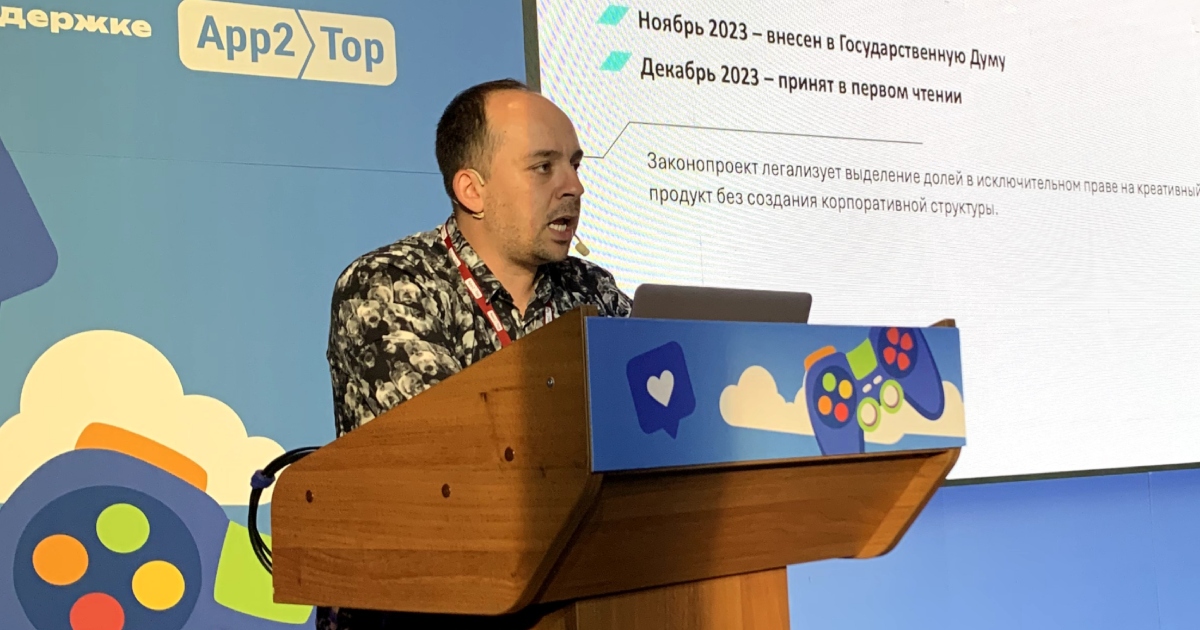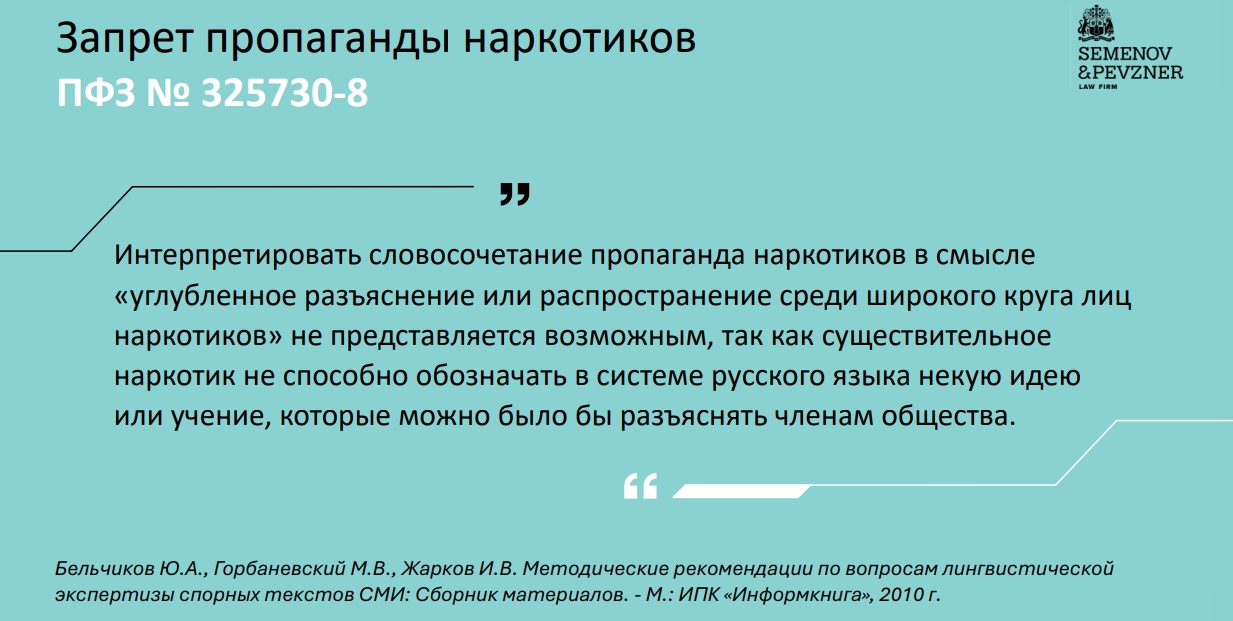Today, the government is increasingly attempting to regulate the gaming industry. Roman Lukyanov, managing partner of the legal firm Semenov&Pevzner, spoke about some of these laws during his presentation at the "Gaming Industry" conference.
Roman Lukyanov at the "Gaming Industry" conference
Since 2023, Russia has introduced no fewer than 30 legislative initiatives that one way or another affect the gaming industry. Not all of these laws have been adopted yet; some are still being revised, but their number will continue to grow in any case.
"The state will increasingly regulate the industry," notes Lukyanov. "This is a reality we cannot avoid. For many years, the industry resisted this, saying we don't need it, and maybe that's true. But it is happening regardless."
In his speech, Lukyanov touched on several bills and initiatives.
Bill on Creative Industries
Passed in the first reading in November 2023
The bill aims to establish the term "creative industries" in legislation, which includes video games, and outline the features of state support in this sector.
According to Lukyanov, the law is good because it "sets a very positive tone." However, the authorities are still unsure about what to do with the gaming industry. For now, the bill's objectives are formulated rather vaguely:
- creating conditions for the self-fulfillment of citizens' creative potential;
- developing elements of the creative economy in Russia;
- stimulating the creation of creative products;
- improving the education system in the field of creative industries.
Bill on Shares in Exclusive Rights
Passed in the first reading in December 2023
The bill has been in the works since 2019. Despite this being its fifth version, it is unlikely to be passed this year.
The main goal of the bill is to legalize the allocation of shares in the exclusive rights to a creative product (including games) without creating a corporate structure.
Ideally, it can become a new tool for investing in the gaming industry. Instead of registering an LLC and other structures, there will be an option to invest in shares. In such a case, each participant can manage their share and subsequently transfer it to third parties.
Presidential Decree No. 430
Came into force in May 2024
According to the decree, it complicates transactions for the transfer of intellectual property rights from "a rights holder from an unfriendly state." Now, these transactions must be approved by the Government Commission on Foreign Investments.
Also, when selling its brand, a foreign company will receive compensation only in a special ruble account type "O."
This could lead to several difficulties: "In theory, if you, as a developer, bought some foreign asset, you would have to go through the Foreign Investment Commission. At the same time, money can be withdrawn from the 'O' account only with the permission of this Commission."
However, the rules only apply to transactions worth more than 15 million rubles. Also, the decree does not apply to works of science, literature, and art, to which video games have been legally classified recently. This removes the difficulties mentioned above, but all objects within the transaction related to trademarks fall under regulation in any case.
Ban on Demonstrating Violence
Passed in the first reading in January 2024
New amendments to Article 13.15 of the Administrative Offences Code of the Russian Federation ban demonstrating violence on the internet, including materials depicting illegal actions committed with cruelty and their consequences, as well as calls to commit such actions.
Violations are punishable by a fine of 200-600 thousand rubles for individuals and 300-700 thousand for officials. However, the law does not apply to works of science, literature, and art (including video games) if they have artistic value.
However, Lukyanov notes that it is unclear who and how will determine the presence of "artistic value." Besides fines, in theory, one could face Roskomnadzor, which threatens to remove the game from the store, block the website, etc.
Ban on Drug Propaganda
Passed in the second reading in April 2024
The law applies to works distributed via the internet (effectively applying to all video games).
The rules do not apply to works of science, literature, and art if they have special labeling. From June 1, 2025, a fine of up to 600 thousand rubles is proposed for its absence.
Labeling methods are still not established, except that it should contain information on the harm of drug use, the illegality of use and distribution, as well as the administrative and criminal liability for this activity.
There is another nuance: under the new rules, drug propaganda is allowed if it is justified by artistic intention. As with the law on violence propaganda, who will determine the presence of artistic intention is unclear.
The Ministry of Culture will determine the list of games subject to labeling. The law is likely to be passed and will come into force next year.
Voice Protection
The bill will be submitted to the State Duma soon
It is proposed to introduce a ban on using a person's voice (including a synthesized version) without their consent. After death, consent must be given by relatives: children, spouse, parents, etc.
There are several exceptions:
- use in state interests;
- the person was paid for the use of their voice;
- if the person was not the main object of capture for synthesis (for example, the voice was recorded at a public event).
"For now, this is a gray area that could transition into a legal framework in the near future (about a year and a half)," notes Lukyanov.



